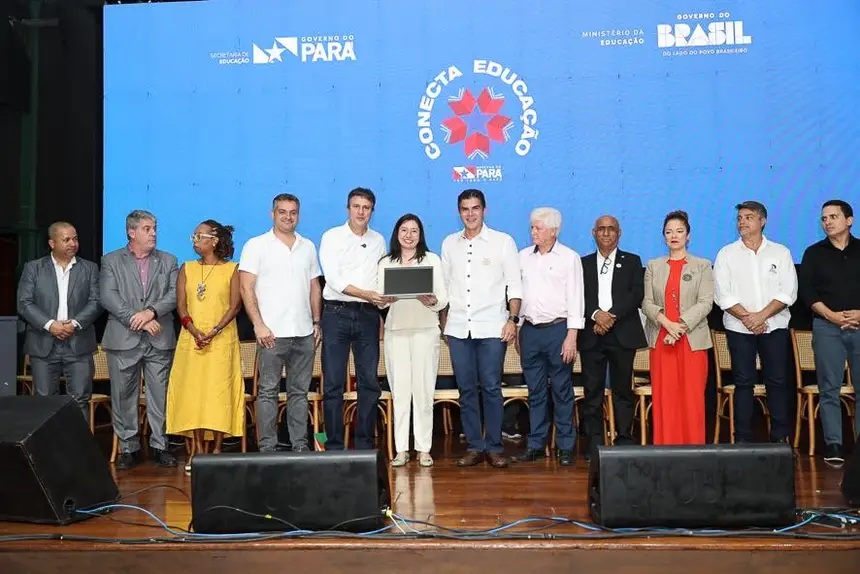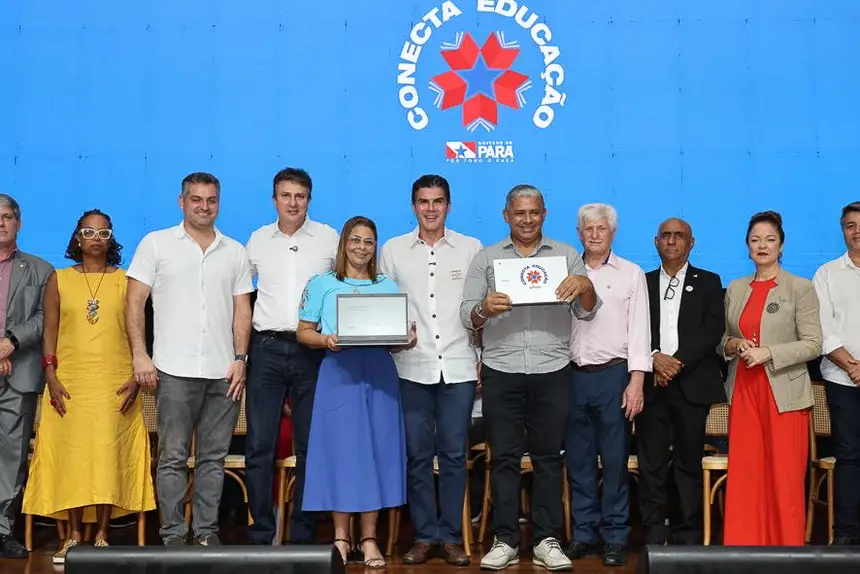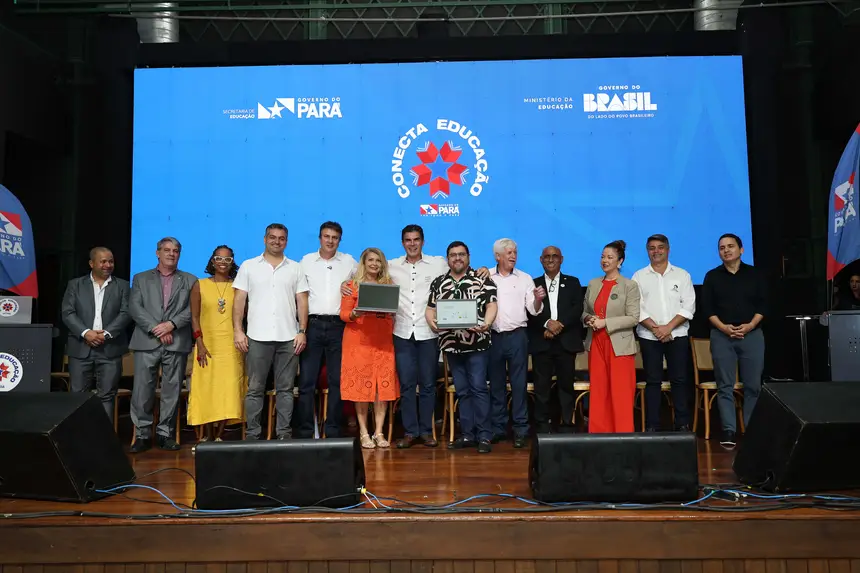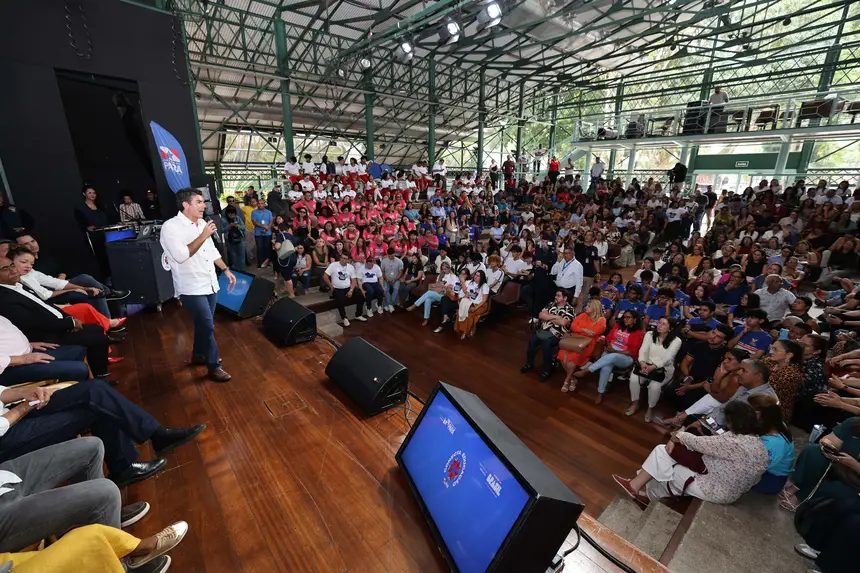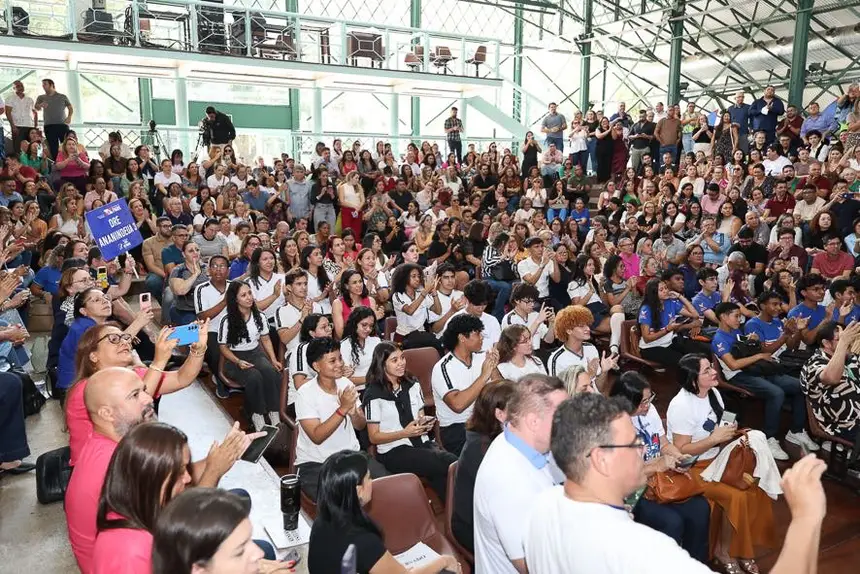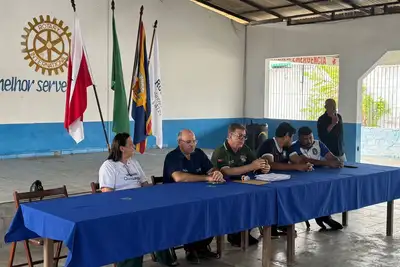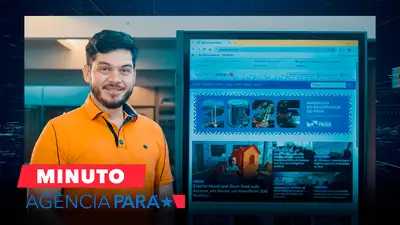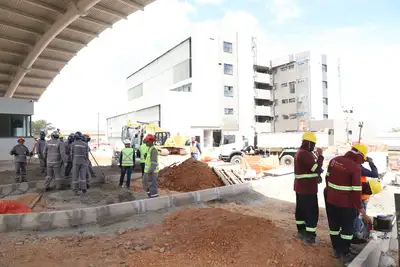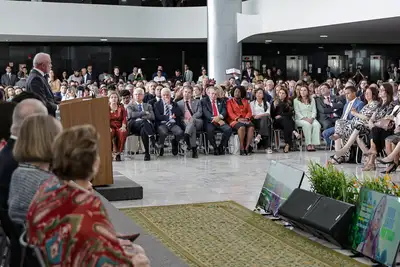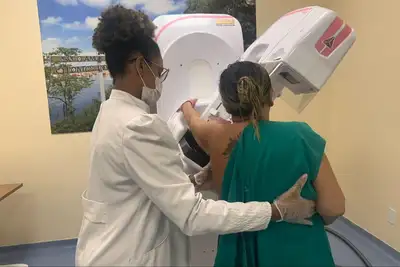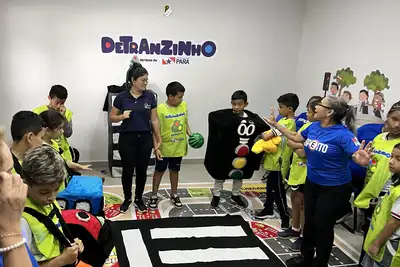State delivers over 17,000 Chromebooks to public state schools
The initiative is part of the 'Conecta Educação' program. So far, the Government of Pará has made 53,500 notebooks available to the school community.
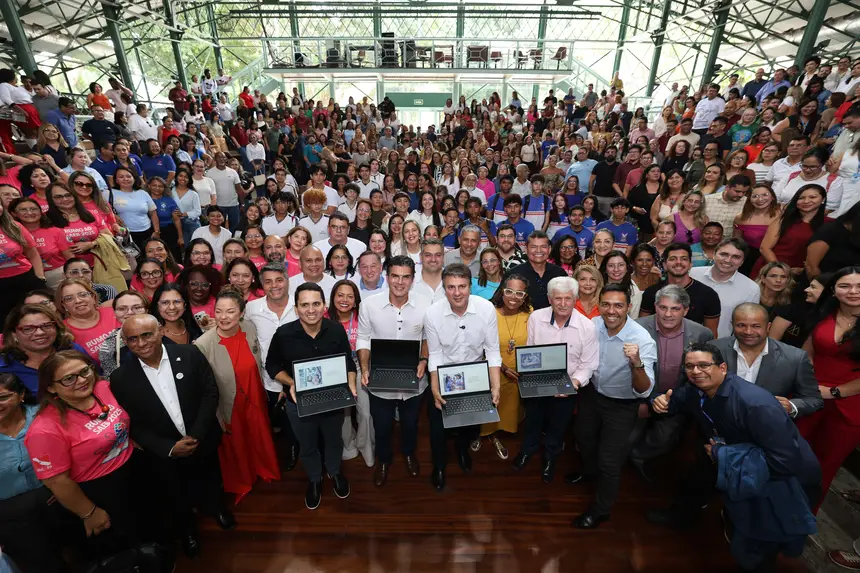
The initiative, which is part of the 'Conecta Educação' program, is a milestone for strengthening state public education. To expand internet access in the 998 educational units, the State Government, through the State Department of Education (Seduc), delivered 17,500 Chromebooks on Thursday (11). The event was led by the State Governor, Helder Barbalho, alongside the Minister of Education, Camilo Santana, and the State Secretary of Education, Ricardo Sefer. The head of the state executive emphasized the Government's commitment to Education.
“First, I want to thank the partnership of the Federal Government, through the Ministry of Education, particularly regarding the pursuit of universal access to technology so that we can, with this, increase and improve the quality of education, access to reading, access to research, knowledge, and information. We had delivered Chromebooks to students at the beginning of this year, so that all schools could have technology equipment available for our students. We guarantee the universalization of wi-fi and internet in all schools in the State, and now we are taking the next step, together with the Federal Government, to provide for the teachers. At this moment, we are starting the delivery of 17,000 computers for the State's teachers, and we aim to universalize it so that all teachers can receive them. We are in dialogue with the Federal Government to reach between 25,000 and 30,000 computers in total so that all teachers in our network, whether they are in the classroom or those who are in the background of structuring the pedagogical process, can have this tool, with the certainty that this boosts and enhances, more and more, the quality of education in the State of Pará,” emphasized Helder Barbalho.
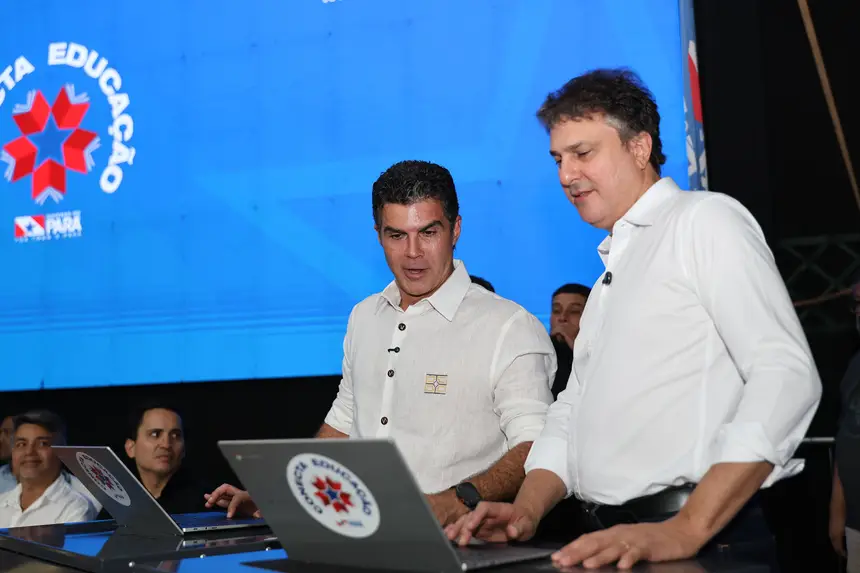
The mobile devices will be used by teachers, the pedagogical coordination of the educational units, as well as training and monitoring teams from the Regional Education Directorates (DREs). This is the 3rd phase of the program aimed at supporting pedagogical work in schools. The Seduc manager, Ricardo Sefer, spoke about the responsibility and relevance of increasingly raising the quality of public education in Pará to global levels.
“I understand that the initiative of the Federal Government, in partnership with the State Government, is a way to align the practices of public education in Pará and Brazil with the best global practices. Today, it is a myth to think that there is a difference in quality or in instruments and equipment between private education - which exists in Brazil - and public education. With great pride and happiness, we are delivering the Chromebooks today, which aligns with the initiative of high-speed wireless internet in schools in the State of Pará to the use of notebooks by all students in the state public network. So, it is a reason for great happiness for the society of Pará, knowing that the public school student is valued, committed, and has access to high-quality education,” reinforced the head of Seduc, Ricardo Sefer.
The Minister of Education, Camilo Santana, highlighted the partnership with the Government of Pará, which has increasingly boosted public education.
“We know the importance of the digital age we are living in, the importance of digitizing education, of using these devices and tools for pedagogical training and the training of our teachers. So, it will be a very useful tool for teachers to better prepare their classes, to use this equipment for the improvement of their learning and for the students' own classes. So, I want to congratulate Governor Helder for this partnership; there are numerous partnerships that we have made here in the State of Pará, but we must value teachers and recognize the role of teachers. I always say that there is a study that shows that the quality of learning for elementary and high school students depends more than 60% on the teacher. So, we have good teachers,” emphasized the minister.
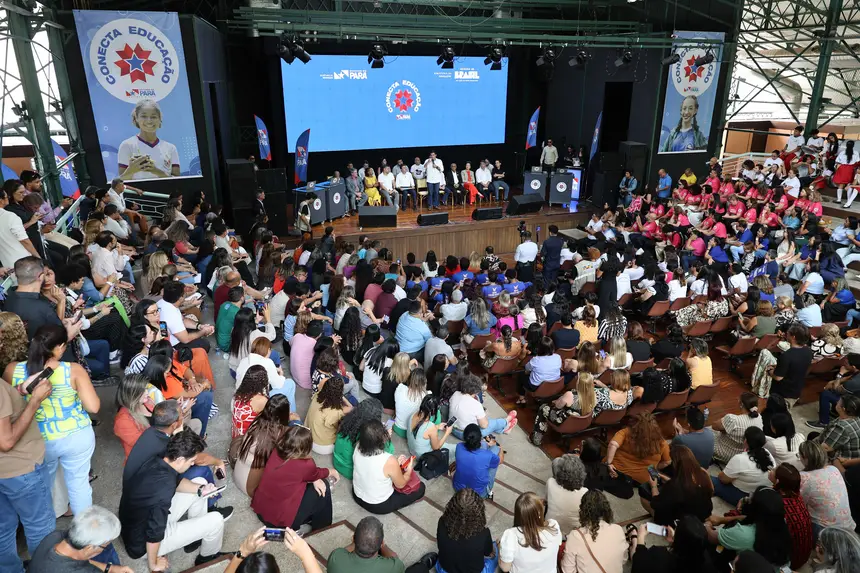
With resources from Federal Law 14,172 - Connectivity Law, the investment was R$ 34,685,000.00. The amount sent to each school will be according to the number of classrooms in operation in each educational unit, where the teacher, in the exercise of their pedagogical activities, can use the device. For the teacher, Liliane Garcia, from the State School José Márcio Ayres, the equipment comes to strengthen and enhance the teaching process.
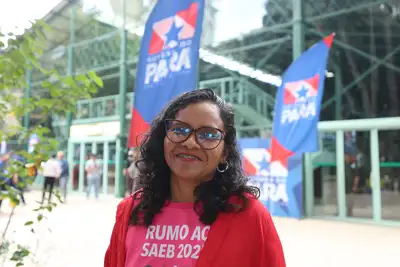
“We consider it an essential and differential tool in education because our students have contact with cell phones. So, it is something familiar, but at the same time, it is a novelty because today, there is a law that prohibits the use of cell phones for non-pedagogical purposes in the classroom, and the presence of Chromebooks makes a difference because the student works on concentration, starting from something that is familiar, although it comes with this character that I always say is innovative, it is new, which is close to them at the same time,” explains the teacher.
For Renan Delmont, an arts teacher, the delivery also allows for greater interaction and integration of students in the classroom.
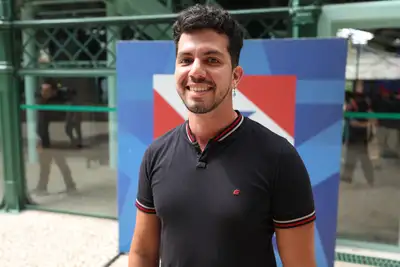
“I always say that digital integration is also an integration of the student's dignity. Many students from the public network do not have access to this technology at home, do not have access to this reality, and this inclusion brings dignity to the student and greatly facilitates working with them. There is another factor, which is the removal of cell phones from school. This removal generates a problem, creates a difficulty, but at the same time opens fields for other potentialities. When we bring this to the student and develop this expertise of the digital age and the integration with it, we enable almost a revolution because the student has their attention focused on the digital age, on digital work, on digital reality, on digital technology, but now with a certain responsibility and care as well,” said the teacher.
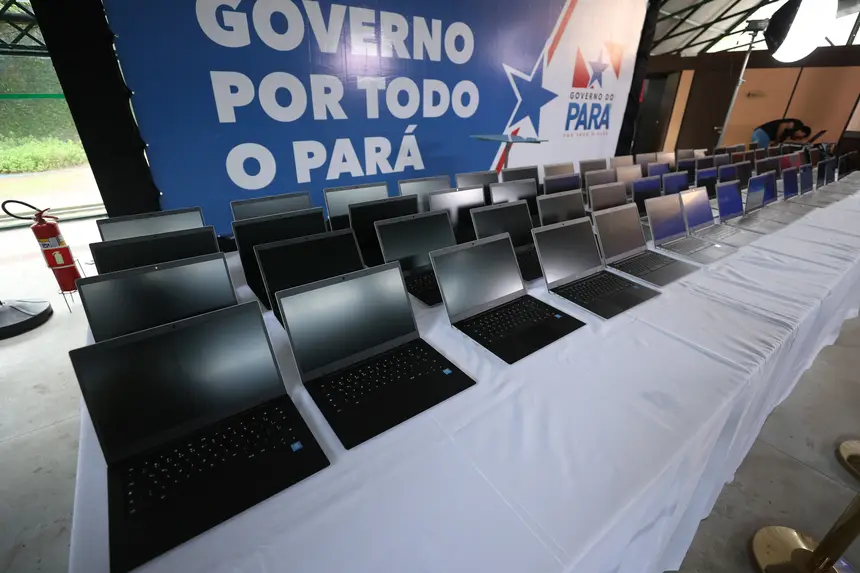
Conecta Educação Project - Composed of three phases, Conecta Educação aims to modernize and expand internet access in state schools through the distribution of internet and mobile devices to state educational schools, being:
In phase 1, Starlink antennas were distributed to the 998 state schools and their annexes (Media Center/Cemep, Rural Schools, etc.) with 100% of the units connected.
In phase 2, 'Mobile Laboratory Kit' with 36 Chromebooks + storage and charging cabinet was distributed to 920 schools, totaling 36,000 Chromebooks for student use.
In phase 3, carried out today, the distribution of 17,500 Chromebooks for teacher use in the 998 state schools and their annexes took place.
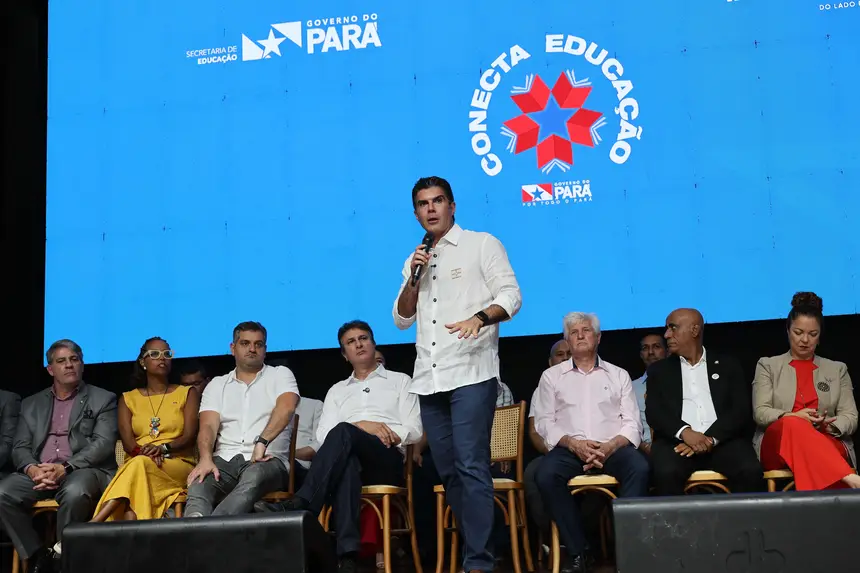
Award for Management and Pedagogical Use of Chromebooks
During the event, the Secretary of Education, Ricardo Sefer, launched the award for the management and pedagogical use of Chromebooks, aimed at enhancing innovative pedagogical practices, supporting school management, and encouraging projects that integrate technology into the teaching and learning process.
Similarly, it seeks to value and sow good practices, recognizing outstanding experiences developed in schools.
In total, there will be three award categories to value the management teams, students, and teachers who stand out in the pedagogical use of technology, in addition to promoting the exchange of experiences and the creation of successful projects.
School Management - promote the management of Chromebook control to optimize administrative, pedagogical, or learning monitoring processes.
Teacher Project - Initiatives led by teachers that explore active methodologies, collaborative learning, production of digital content, or other pedagogical strategies mediated by the Chromebook.
Student Project - Projects led by students or groups of students that demonstrate creativity, innovation, and a positive impact on the school community through the use of Chromebooks.


